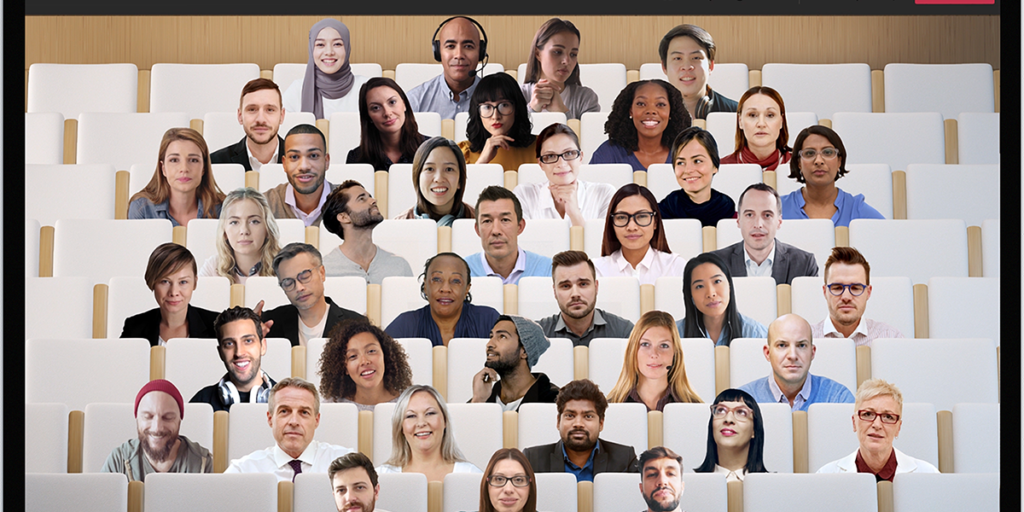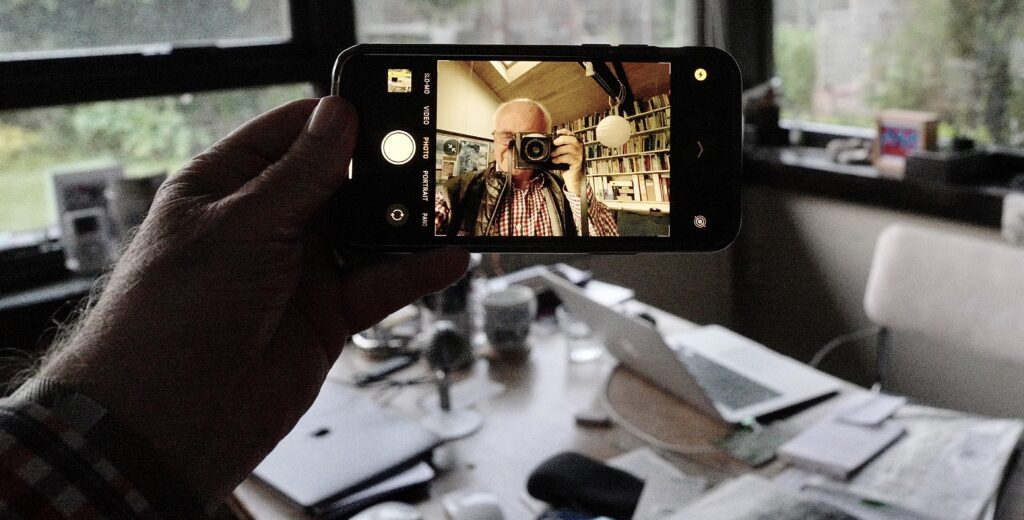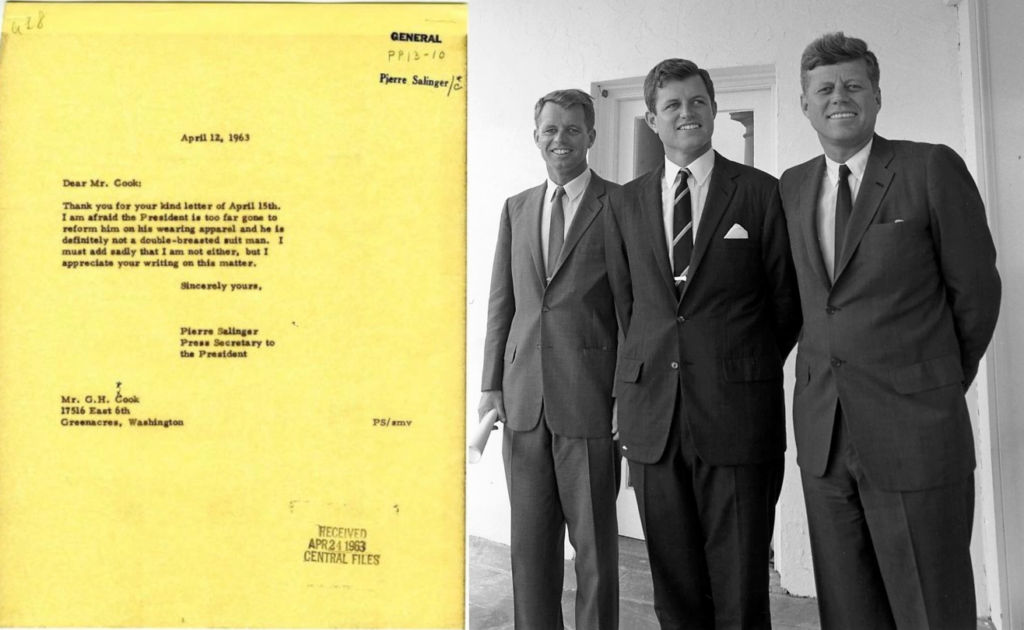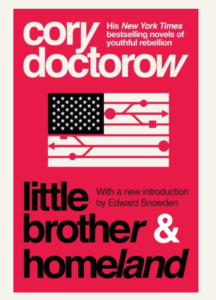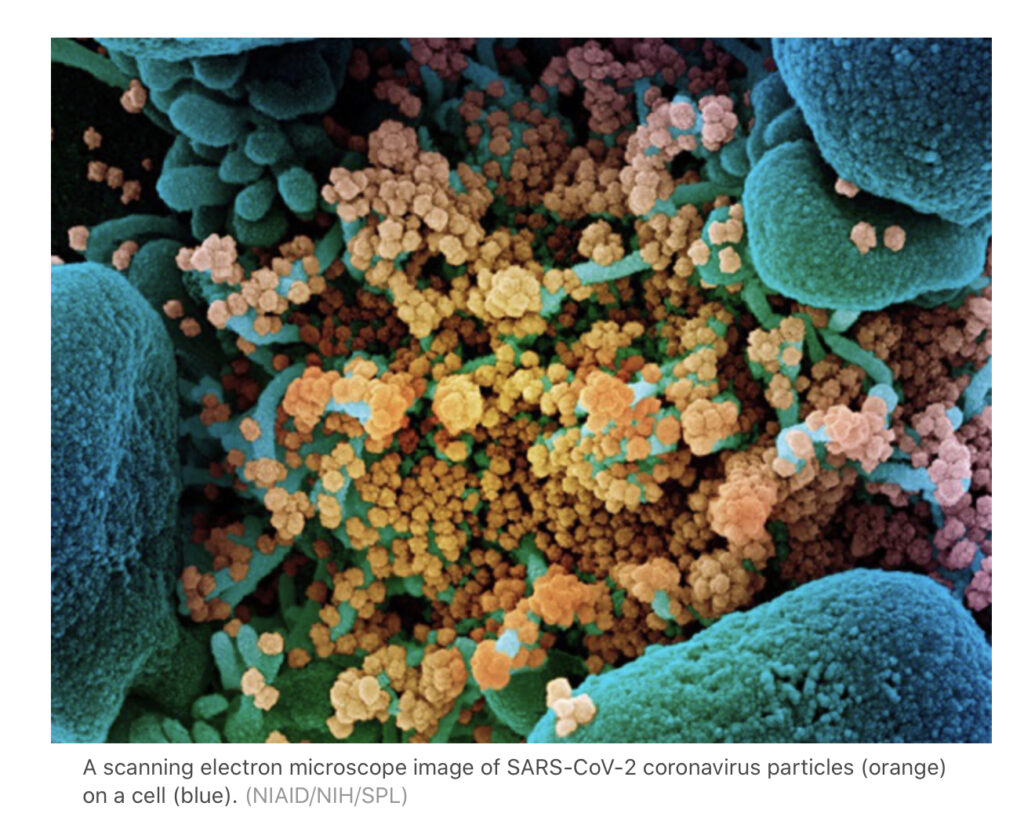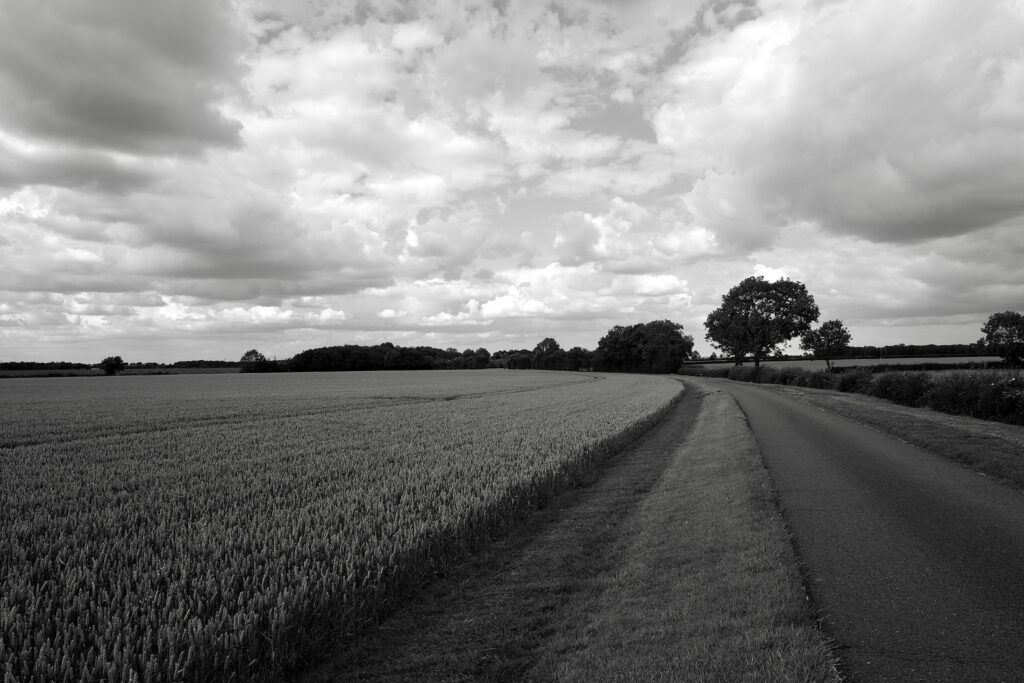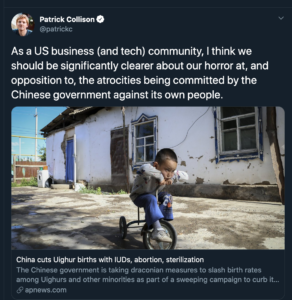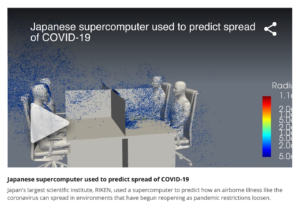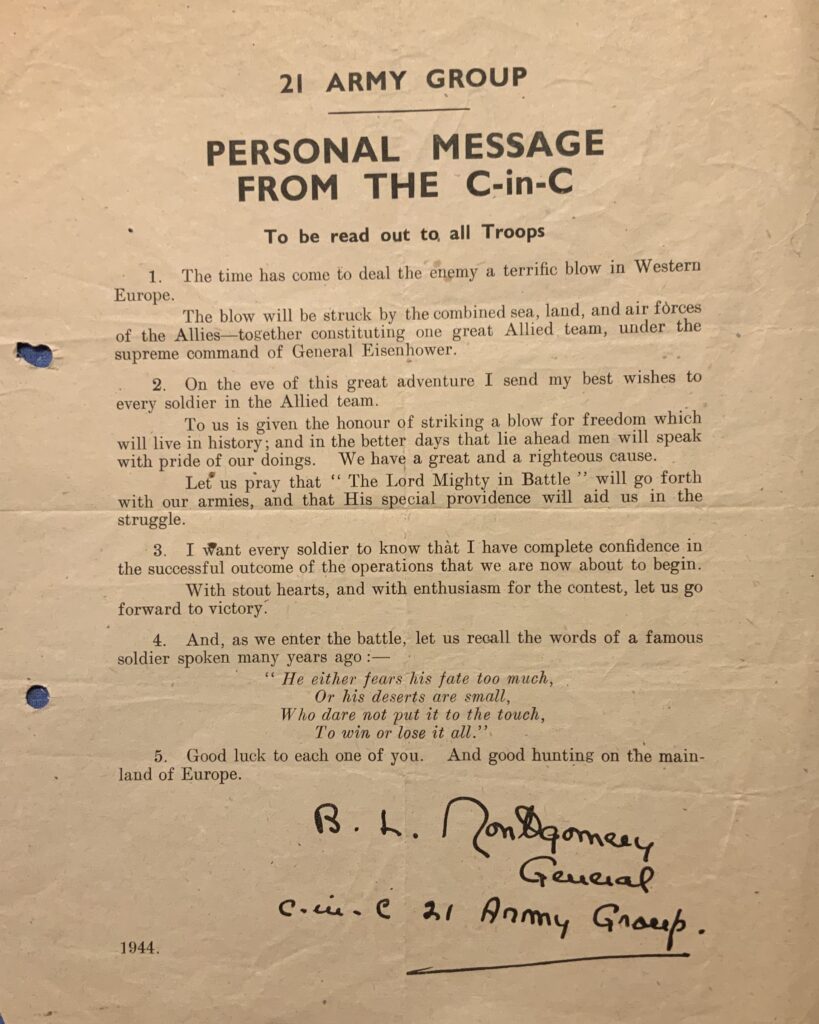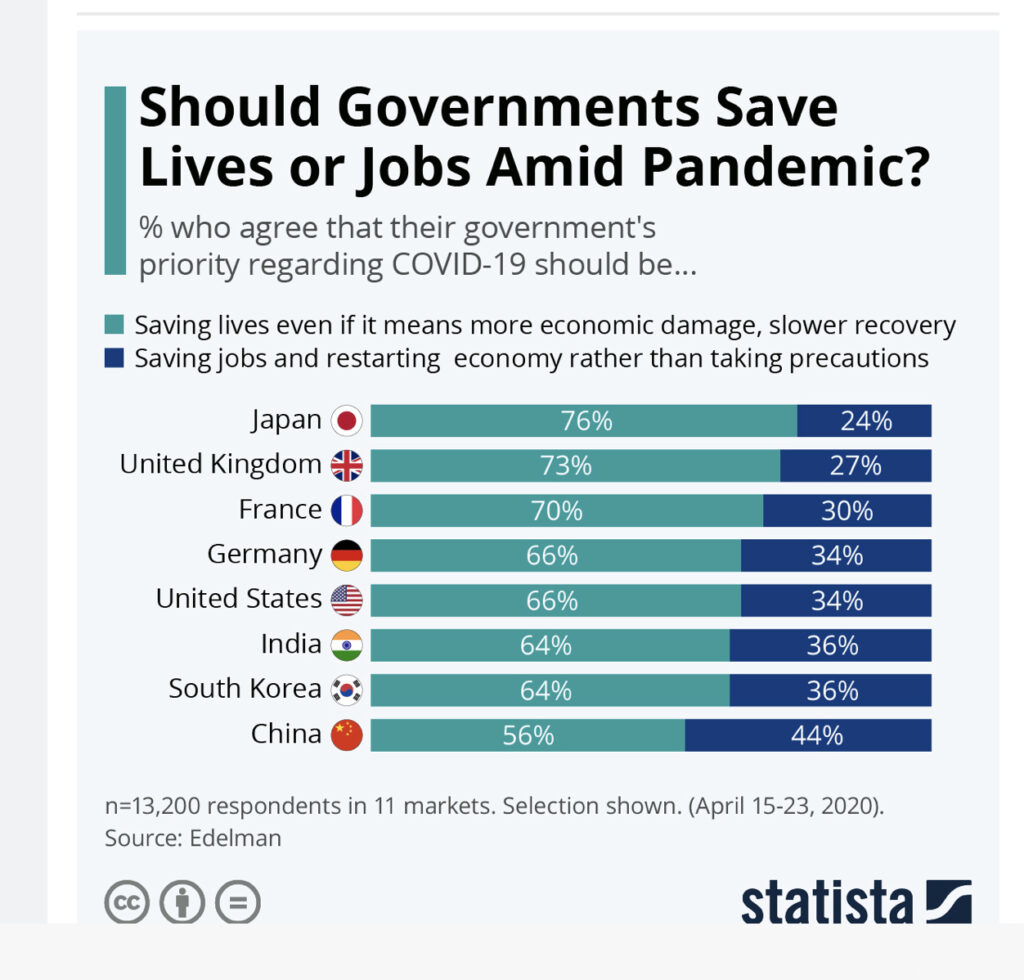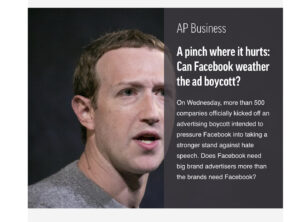Quote of the Day
”If you want home truths, you should stay at home”
- Clifford Geertz
The Lark Ascending
Amazing performance in which Victoria Yeh plays all parts of a 13-piece string arrangement of Ralph Vaughan Williams’s masterpiece.
Another Facebook metaphor
This time from Kara Swisher:
I keep trying to figure out a way to explain what is happening — actually, to explain why nothing is happening — with a fresh metaphor. Once, I compared Facebook to a city manager who treats the streets like The Purge. The Salesforce chief executive, Marc Benioff, likened Facebook to a cigarette company. And still others have likened it to a chemical company that carelessly spews noxious information into the river of society.
This week, I finally settled on a simpler comparison: Think about Facebook as a seller of meat products.
Most of the meat is produced by others, and some of the cuts are delicious and uncontaminated. But tainted meat — say, Trump steaks — also gets out the door in ever increasing amounts and without regulatory oversight.
The argument from the head butcher is this: People should be free to eat rotten hamburger, even if it wreaks havoc on their gastrointestinal tract, and the seller of the meat should not be the one to tell them which meat is good and which is bad (even though the butcher can tell in most cases).
Basically, the message is that you should find the truth through vomiting and — so sorry — maybe even death.
In this, Mr. Zuckerberg is serving up a rancid meal that he says he’s not comfortable cooking himself, even as his hands control every aspect of the operation.
Good stuff. I wonder where the next metaphor will come from.
Why is it that the two Western democracies that have mishandled the Coronavirus crisis worst are the US and the UK?
There’s something weird about the ‘Anglosphere’. Could it be that both countries have a lot in common? For example:
- Their two main political parties are dysfunctional
- Both states have been hollowed out by decades of neoliberal governance by remote elites
- Both have chronically unrepresentative electoral systems (FPTP in UK; the crackpot Senate representation which gives rural states the same representation as massive urbanised regions; comprehensive Republican gerrymandering of House of Representative seats; and of course the Electoral College.
- Dark money plays a major role in campaign funding, and electoral laws are no longer fit for purpose
- Both have delusions of exceptionalism
- Both have a history of Imperial and racist exploitation
- Currently both are led by blustering moral cretins.
Thinking the unthinkable
From Roger Cohen:
Last month, Trump tweeted: “RIGGED 2020 ELECTION: MILLIONS OF MAIL-IN BALLOTS WILL BE PRINTED BY FOREIGN COUNTRIES, AND OTHERS. IT WILL BE THE SCANDAL OF OUR TIMES!” Of course, that foreign country would be China.
Trump is preparing the ground to contest any loss to Joe Biden and remain president, aided, no doubt, by Attorney General William Barr’s Justice Department.
I know, it’s unthinkable. So was the Reichstag fire.
Larry Brilliant on Covid-19
He’s the guy responsible for eliminating smallpox. Steven Levy interviewed him for Wired magazine. Here’s the part of the interview that really caught my eye:
Levy: It seems like the longer it goes, the less we know about it. Every week something new comes up that contradicts what we thought we already knew.
Brilliant: No, no—you know a lot more about it now than you did three months ago. Yes, there are absolutely more questions today than there were 100 days ago. But part of that is because we’re getting more sophisticated in our ability to ask questions. Three months ago, we had only had a couple hundred cases of this novel virus. We have now got over 11 million cases, and a half a million deaths globally. The virus has been speeding along at an exponential speed, but so has science. So now we can begin to understand that this virus attacks the circulatory system, it attacks the vascular and nervous systems, it attacks the respiratory system, it attacks our ability to bring in oxygen. That’s why people can go to the hospital and be on their phone, not in any respiratory distress, but have oxygen saturation in the 50s, which in the old days we’d think of as you’re near death. It also makes you understand why you can get these Covid toes, why you can lose your sense of taste or smell, why you can have a stroke. This virus attacks blood vessels, it creates blood clots. That is probably one of the reasons why it causes strokes. We have a very large number of deaths due to kidney failure, and we are having terrible results from the ventilators that we were so obsessed about early on, though lately it’s looking a little better, because we’ve learned more about how to use them for this disease. We have learned a tremendous amount about this virus, about how it infects people, how it kills, how it spreads, but the big surprise to me is the kind of pan-organ nature of its attack. It gives the lie to anybody who thought that a comparison with influenza was in the ballpark.
You paint quite a picture.
Brilliant: This is a big fucking deal. If I would not be excommunicated from the world of science, I would call this an evil virus, but I can’t do that because I can’t impugn motives to it. But if I could, I would call it that. It’s certainly pernicious. This is the worst pandemic in our lifetime. And it is the first time we have had a pandemic in the United States in which we have had such a total, abysmal failure of our federal government.
Larry Summers on the significance of Covid-19
The Covid-19 crisis is the third major shock to the global system in the 21st century, following the 2001 terror attacks and the 2008 financial crisis. I suspect it is by far the most significant.
Although the earlier events will figure in history textbooks, both 9/11 and the Lehman Brothers bankruptcy will fade over time from popular memory.
By contrast, I believe, the coronavirus crisis will still be considered a seminal event generations from now. Students of the future will learn of its direct effects and of the questions it brings into sharp relief much as those of today learn about the 1914 assassination of the Archduke, the 1929 stock market crash, or the 1938 Munich Conference. These events were significant but their ultimate historical importance lies in what followed.
Yep. Most people don’t seem to have twigged this yet.
From the Financial Times
This blog is also available as a daily email. If you think this might suit you better, why not subscribe? One email a day, delivered to your inbox at 7am UK time. It’s free, and there’s a one-click unsubscribe if your decide that your inbox is full enough already!
